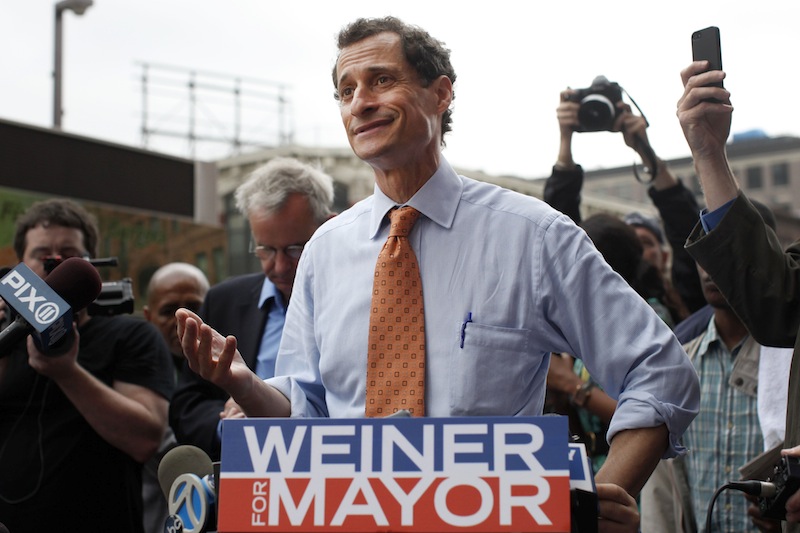At least two candidates in New York City’s mayoral election reportedly had a hard time voting Tuesday.
According to Reuters reporter Francesca Trianni, Republican candidate Joe Lhota was forced to use a paper ballot because “all lever voting machines were broken, except for one” at his polling site in Brooklyn. A spokesperson for the Lhota campaign confirmed the “machines were broken” at his polling place.
Democratic candidate Anthony Weiner also had issues when he showed up to vote. Buzzfeed’s Ruby Cramer reported there was a “snafu” that delayed Weiner because his name was in the voter rolls “but his signature was missing.” The Weiner campaign did not immediately respond to a request to confirm this report.
Candidates weren’t the only ones reporting problems at polling sites. Brooklyn Councilman Jumaane Williams told TPM multiple polling sites in his district had “minor” problems and, at one point, all of the machines were down at one site. The Board of Elections has also been responding to multiple complaints on Twitter since polls opened at six Tuesday morning.
Since New York City switched to electronic voting in 2010, there have been multiple races that included disputed vote counts, allegations of fraud, long lines at polling sites, and legal battles. Because of this, the BOE brought back lever voting machines that had been in use since the 1960s for Tuesday’s mayoral primary and other citywide races in an effort to prevent potential problems. However, many officials and experts have expressed concerns about the condition of the machines, which had been mothballed since 2010, and the BOE’s spotty track record.
A large number of paper ballots and any other issues at the BOE could lead to a slow, contentious vote count in the mayoral election. This could be extremely problematic if the margins in the race are close. New York City election law provides for a runoff between the top two primary finishers if no candidate earns more than 40 percent of the vote. This means the winner’s total as well as the totals for the second and third place candidates (and the margin between them) are all important.
Pre-election surveys in the crucial Democratic mayoral primary showed Public Advocate Bill de Blasio just shy of the 40 percent threshold and City Council Speaker Christine Quinn and former Comptroller Bill Thompson in a fairly close race for second place. All of the major Democrats participated in the city’s public financing system and, if there is a delay in results being certified, it will make it difficult for candidates to campaign and receive the public matching funds ahead of a potential Oct. 1 runoff.






